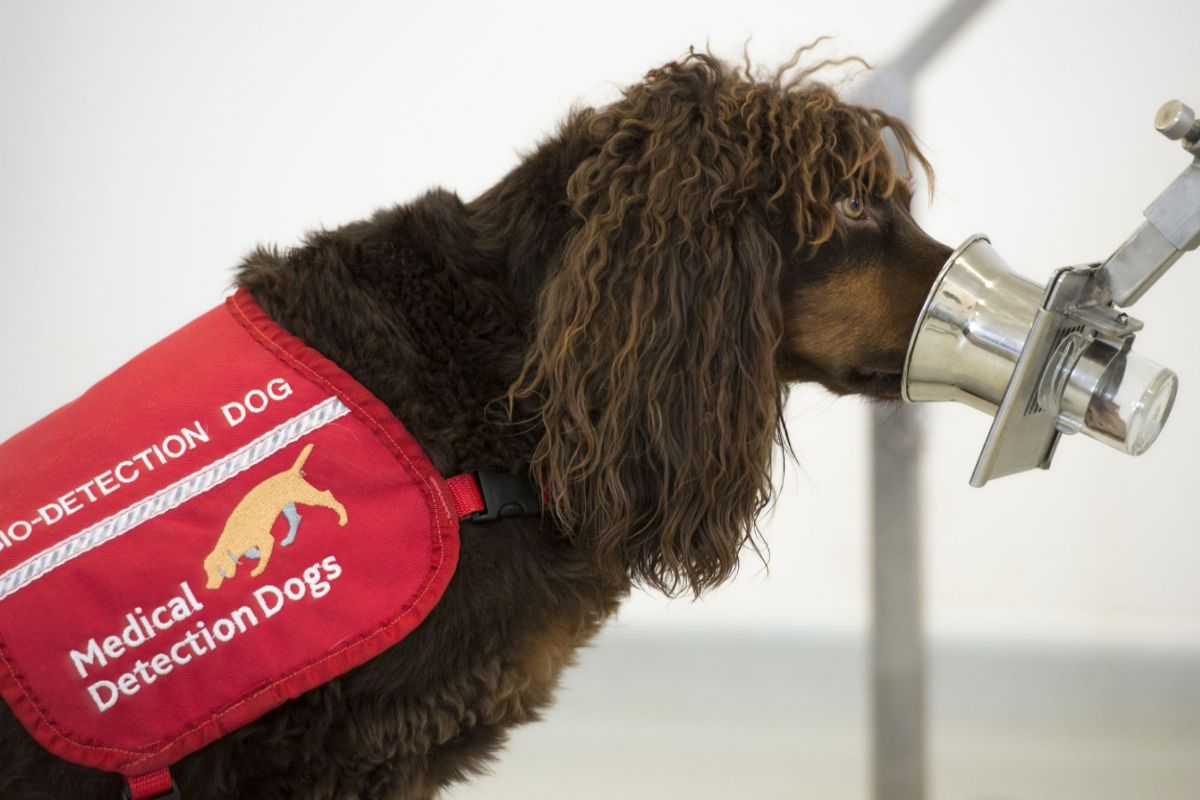- Coronavirus. Last minute
- Diseases - Dogs that detect malaria by sniffing socks
- Genetics: dogs became 'man's best friend' at Europ
They are called Norman, Digby, Storm, Star, Jasper and Asher and are known as the Super Six (the Superseis). This gang of British dogs - Labradors and Cocker Spaniel - are axes detecting diseases through smell. Researchers at the Medical Detection Dogs Center who care for and train them are amazed at their ability to detect pathologies in people, which is why they have been working with dogs for a decade to make the most of their highly developed sense of smell.
And it is that in the same way that these animals have become essential companions of the police to search for explosives or drugs and of the emergency teams to find people missing after an earthquake, they are also allies of the doctors and perhaps we will soon be able to see them at airports and other public places sniffing passengers to find out if they have contracted the dreaded coronavirus.
Scientists at Medical Detection Dogs, a center located in Milton Keynes dedicated to training dogs to detect diseases , are investigating whether their canine staff is also capable of determining if a person has Covid-19 through its odor.
"Our biodetection program dogs can detect diseases such as different types of cancer, malaria, Parkinson's and Pseudomonas infections, while those in the medical alert assistance program work with people with type 1 diabetes, Addison's disease ( adrenal insufficiency), Orthostatic Postural Tachycardia Syndrome (POTS) and severe allergies, "a spokeswoman for Medical Detection Dogs lists this newspaper.
Deployment at airports
The process is being coordinated by researchers from the London School of Hygiene and Tropical Medicine. These scientists, in collaboration with other researchers at Durham University, demonstrated that dogs are capable of detecting malaria in an article published in the journal Lancet Infectious Diseases . Other studies revealed that they are able to detect changes in glucose levels or bacterial infections by smell, which led them to think that they will most likely also be able to detect this new coronavirus without being trained to do so.
"These results supported the belief that each disease has a unique odor that dogs can detect. We believe they have the potential to detect the smell of Covid-19 because they have already shown that they are capable of correctly identifying other pathologies and infections in people. We still don't know if the Covid-19 has a specific smell, but we think it does, and if so, we are confident that they will detect it, " the spokeswoman said.
In the initial phase of this research project that the British Government finances with half a million pounds, the Superseis will undergo intensive training that will last between eight and ten weeks to find out if they can reliably detect Covid-19 through the odor. The samples to be sniffed come from hospitals in the NHS, the UK national health system: " We collect breath and body odor samples that we think may contain the virus, such as masks . We are not going to use human tissue."
If after the training they confirm that they detect the coronavirus, they will move on to the second phase: "We will do tests in real situations and we hope to be able to work with other agencies to train more dogs and to start working," the spokeswoman said. "Dogs already perform a number of tasks at airports. Animals trained to detect Covid-19 would be deployed in a similar way, to passively detect, that is, without physical contact, passengers at agreed points at the airport." The researchers believe that detection would be quick, and that a dog could monitor more than 200 people in an hour.
In accordance with the criteria of The Trust Project
Know more- Science and health
- science
- Covid 19
- Coronavirus
Covid-19The dreaded bats are more allies than enemies of man
Pandemic How History teaches us that a second wave of coronaviruses could be even worse
HealthWho warns: science does not endorse coronavirus "immunity passport"

